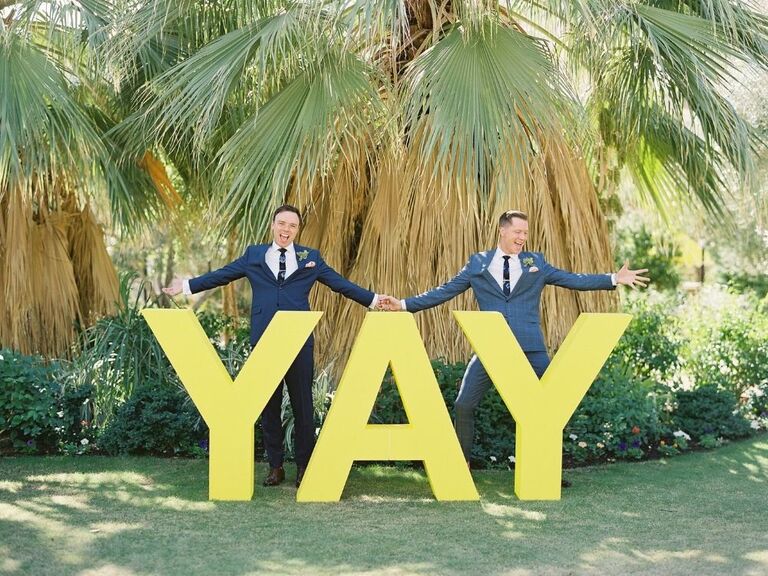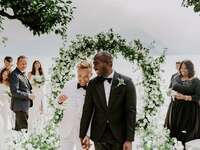A Glossary of Gender-Neutral Titles and Inclusive Wedding Terms
In all arenas, especially weddings, words matter. For example, your wedding ceremony altar and the ways you intend to alter your wedding dress are two very different things. Just like your wedding stationery and stationary catering stations are also distinctly separate items, but just one letter apart. Given the Greek and Latin roots of the English language, many of the words we use in everyday language add gender to items that aren't inherently gendered. For example, calling someone a fiancé puts forth the assumption that they're a male-identifying person while calling them a fiancée posits that they're female-identifying. Meanwhile, calling someone your significant other or partner still conveys their connection to you without layering in gender superfluously. Weddings are for everyone and using inclusive language when speaking about nuptials is an important part of ensuring that they're welcoming. To that end, we're taking a look at gender-neutral wedding terms you can use in place throughout wedding planning.
The Importance of Inclusive Wedding Terminology
"Inclusive terminology in the wedding space is important for two main reasons, which are connected," explains wedding expert Kirsten Palladino of Equally Wed. "First, people want to feel welcomed, understood and wanted. Using inclusive language shows them—and everyone else—that you value inclusivity and that you not only want to serve the LGBTQ+ community but that you also understand them (at least on some level). Second, it's good for business. And people spend their money where they feel welcomed, understood and wanted."
In addition to leaning into inclusive wedding terminology, paying special attention to pronouns is another way to make sure everyone feels welcome at your wedding in regards to the words you use. Make space for wedding vendors and attendees alike to share their pronouns (an RSVP card is a great spot for this) so you can ensure that each person's gender identity is acknowledged and honored throughout the wedding process.
The Knot Expert Tip: If you're struggling to think of a gender-free way to say something wedding-related, focus on swapping out the word "bride" for "wedding"—a bridal party is a wedding party, a bridal bouquet is a wedding bouquet. This hack works almost every time—after all, weddings aren't just for brides!
Glossary of Inclusive Wedding Titles and Terms
Keep this glossary of gender-neutral wedding language handy throughout your wedding planning journey. Whether you're just looking for alternate terms for bride and groom or planning-related gender-inclusive and non-binary wedding terms, this is your go-to source for inclusive wedding titles and terms.
1. Celebrant
A celebrant is an inclusive term for a person engaged to be married. These people are the whole reason you're celebrating, so calling them the celebrants is an apt title.
2. Marrier
If you're looking for a non-binary term for bride, marrier is the way to go. Like celebrant, this is a word you can use to describe a person engaged to be married.
3. Nearlywed
Like marrier and celebrant, this is another synonym for an engaged person set to be married. People may also choose to combine the words bride and groom to form either "broom" or "gride" if they want other options for gender-neutral wedding titles, but newlywed is a simple, to-the-point way of communicating someone's engagement in a way that's easy to understand for people who may not have heard some of the more unique wedding titles that exist.
4. To-be-wed
If newlywed, marrier and celebrant aren't quite what the gender-neutral terms you're looking for, you're in luck as there's the wedding industry has a fourth way to communicate that you're talking about an engaged person getting ready to marry. You can use the term to-be-wed.
5. Wedding Suite
As a replacement for the term bridal suite, this is the room in the venue where the wedding party can get ready. It's important for venues to have two of these, both filled with amenities such as mirrors that people need for getting ready, as both partners deserve a space for prep ahead of the big day.
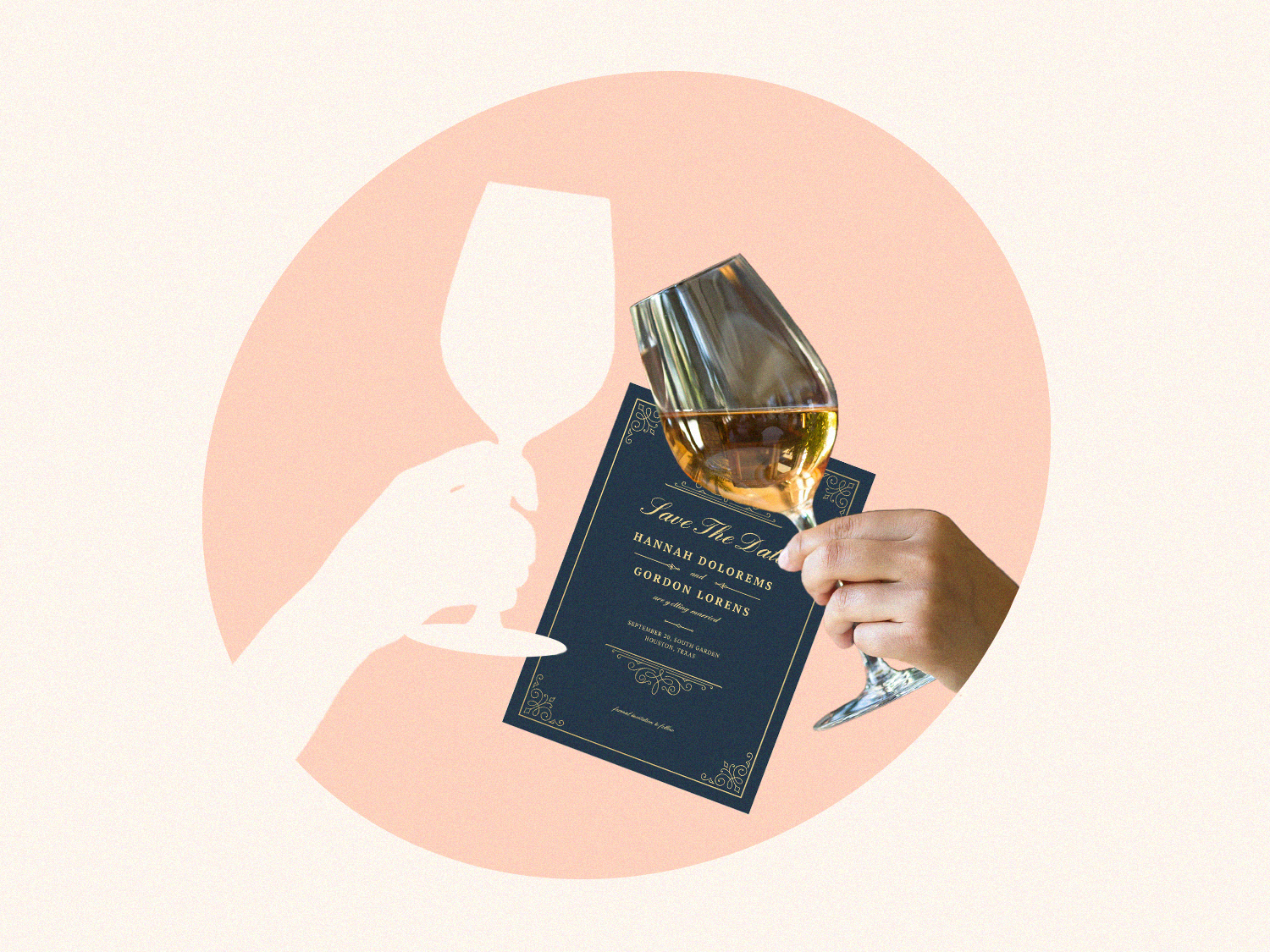
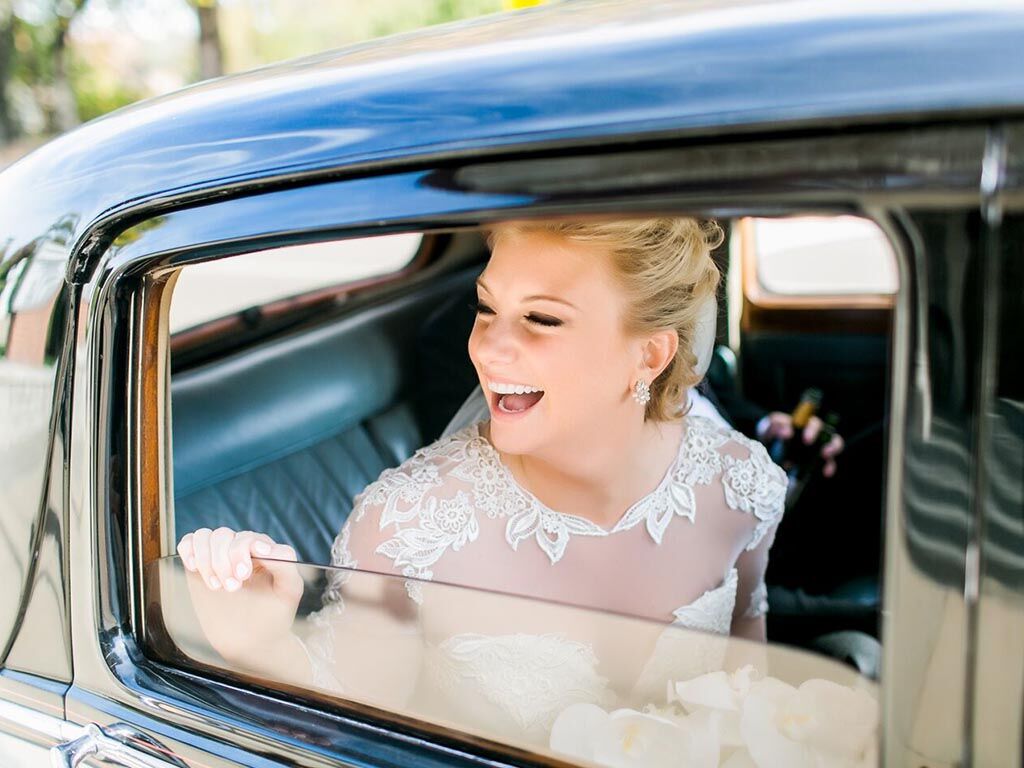
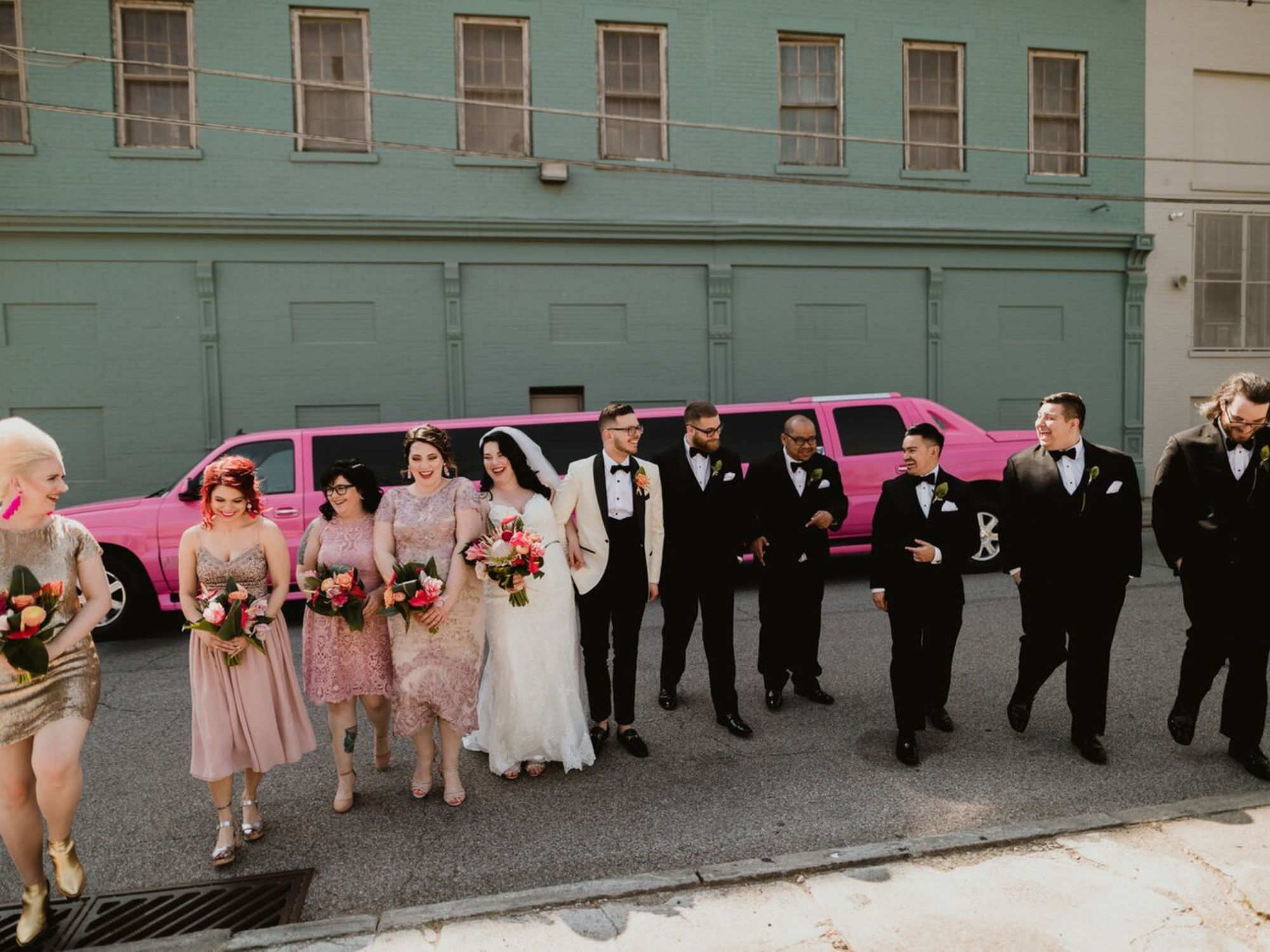
6. Wedding Gown
Simply put: a dress or gown worn on the wedding day. Similarly, wedding dress boutique is a great swap for bridal boutique.
7. Wedding Shower
In lieu of a bridal shower, this is a gender non-conforming way to refer to the prewedding event where friends and family can shower the to-be-weds with gifts from their wedding registry in anticipation of the big day. The term couple's shower is also one that works, especially if you're choosing to have a joint shower where both to-be-weds are present as guests of honor.
8. Partner A and Partner B
On vendor intake forms and contracts where a couple needs to put down each partner's name, it's a great idea to simply say Partner A and Partner B, instead of bride and groom.
Palladino notes that the key with inclusivity is to not make broad, sweeping generalizations and assumptions. If a couple wants to use gendered language because it feels authentic to them, that's great. However, that should only come after they've expressed that desire. For things like intake forms where you don't know a thing about the couple, err on the side of gender-neutral wording. "I always tell my students and readers that there's nothing wrong with gendered language if it feels authentic to the individual or the couple," says Palladino. "It's when it's used in broad descriptions that it excludes the LGBTQ+ community."
9. Couple
In a similar vein, simply referring to the to-be-weds are "the couple" is a simple swap, instead of saying bride and groom. Often, the least complicated words are the most effective for saying what you mean!
10. Wedding Attendants
Skip phrases like bridesmaids and groomsmen—instead, call everyone wedding attendants. These are the members of your wedding party that you've tapped to stand next to you and support you while you say "I do."
11. Person of Honor
Gone are the days of maids of honor and best men. In addition to wedding party members, couples may choose to have a best person or friend of honor who is a distinguished member of the group of wedding attendants they've gathered.
Ultimately, it's wise to have a discussion with your best friend and ask them what term they feel most comfortable with to describe their role in the wedding. If they request to be known as the best woman, bridesman, man of honor, or even best person, honoring their title request is the best way you can be supportive of the loved one who is playing an integral role in your wedding.
12. Bach Party
Instead of a bachelorette party or a bachelor party, simply calling any prewedding vacation with wedding party attendants a bach party is the way to go. Alternatively, you can also use the term bachelorx party.
13. Flower Child
Here's to doing away with the phrase flower girl in favor of flower child.
14. Primary Bouquet
On things like timelines and itemized floral orders, it's helpful to call out which personal flowers belong to which person. However, the main bouquet, if there is one, shouldn't be called the bridal bouquet. Instead, simply use the phrase primary bouquet when referring to the floral arrangement that one of the to-be-weds intends to carry. If both to-be-weds are having bouquets, you can use Partner A and Partner B terminology when referring to whose flowers are whose.
15. Head Table
At the wedding reception, there is often a focal-point table where the couple and other VIPs (either their family or wedding party) will sit. While some refer to this table as the King's Table, we're in favor of skipping of the term because it reinforces both the patriarchy and a monarchical system of government. Instead, simply call that main table the head table or just table #1.
